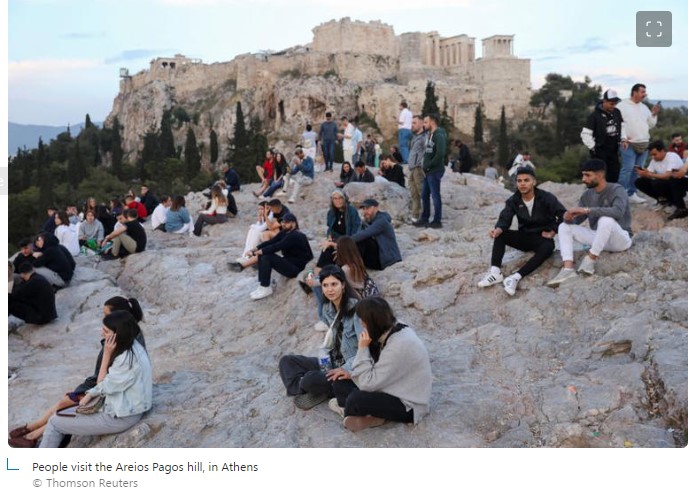As Greek elections loom, parties vie for votes of ‘lost generation’

Politicians vying for votes in Greece’s election on Sunday have turned to YouTube and TikTok to win over a younger generation who have long felt that years of crises have cost them their youth.

People visit the Areios Pagos hill, in Athens© Thomson Reuters
Eirini Baliaka is a case in point. A decade after entering university in the hopes of becoming a teacher, juggling jobs to pay bills as Greece faced a deep economic slump, a pandemic and cost-of-living crisis ensued, leaving her no closer to that ambition.
“What I imagined at 18 is a long way away from what I’m living at 28,” the physics student said. “I don’t know how we cannot be called a lost generation. I feel like I lost the game before it even began.”
Wooing under 30s like Baliaka is proving a challenge for parties across the spectrum ahead of the May 21 vote, with political pledges seen as falling short for a generation that will be vital to Greece’s economic outlook as its population ages.
A new electoral system means an outright winner is unlikely on Sunday, making every vote count.
Opinion polls show the ruling conservative New Democracy party ahead of the leftist Syriza overall. Among young voters, leftwing opposition parties tend to be more popular, but many remain undecided.
“It’s a generation of Greeks who grew up in difficult and unprecedented conditions, which does not allow them to take things too lightly,” said George Arapoglou, head of Pulse pollsters.
“They don’t need someone to inform them, they need someone to convince them.”
STATE OF STAGNATION
If elected, Syriza says it will abolish university entry requirements, while New Democracy has promised a 150-euro benefit when someone turns 18.
Lamprini Rori, assistant professor of political analysis at Athens University, says that, like Baliaka, most of her students work, and that will mark their political identity in the future.
Inflation and economic growth are the issues foremost on their minds, and while 82% of young Greeks say they intend to vote, only 35% believe elections can improve things, a survey by Eteron think tank found.
“If we continue with the same government I feel it will bring me more despair. If anyone else comes, do I believe it will bring about a big change? No,” Baliaka said.
Her predicament reflects a wider problem.
While the economy is forecast to grow by 2.3% this year and unemployment has eased to 10%, nearly a quarter of those under 24 are jobless, and 14% of those under 30 are “severely materially or socially deprived,” according to Eurostat, both figures more than double the EU average.
Economists say the scarring effects of lost income, skills and productivity suffered in earlier years will likely last a lifetime and could spell problems for state finances down the line, with an ageing and shrinking population worsened by an exodus of nearly 500,000 skilled young Greeks during the crisis.







